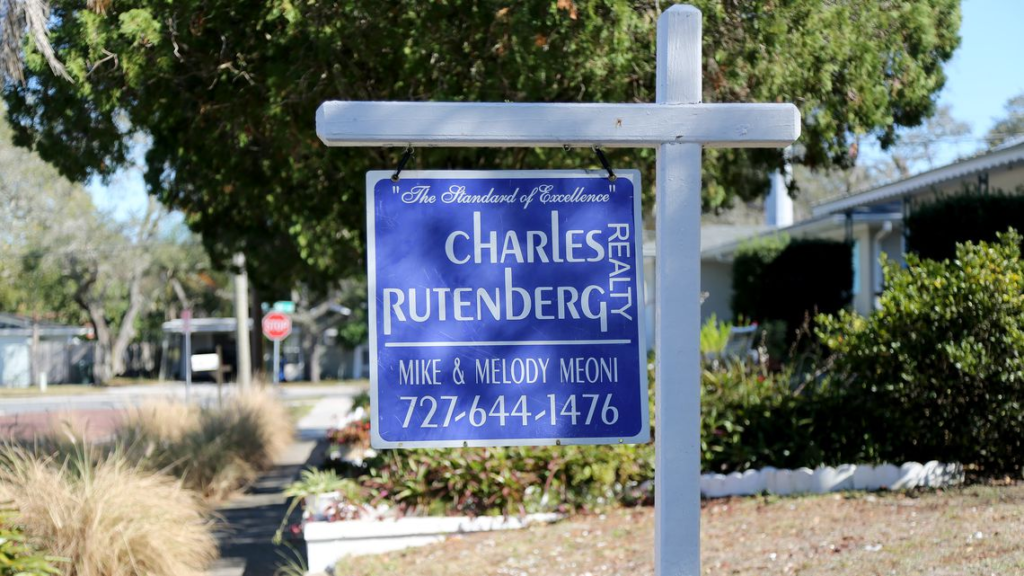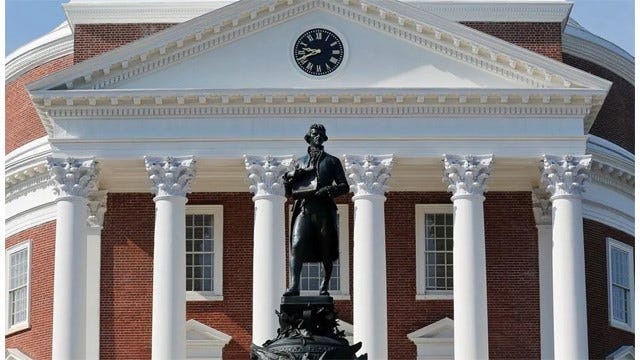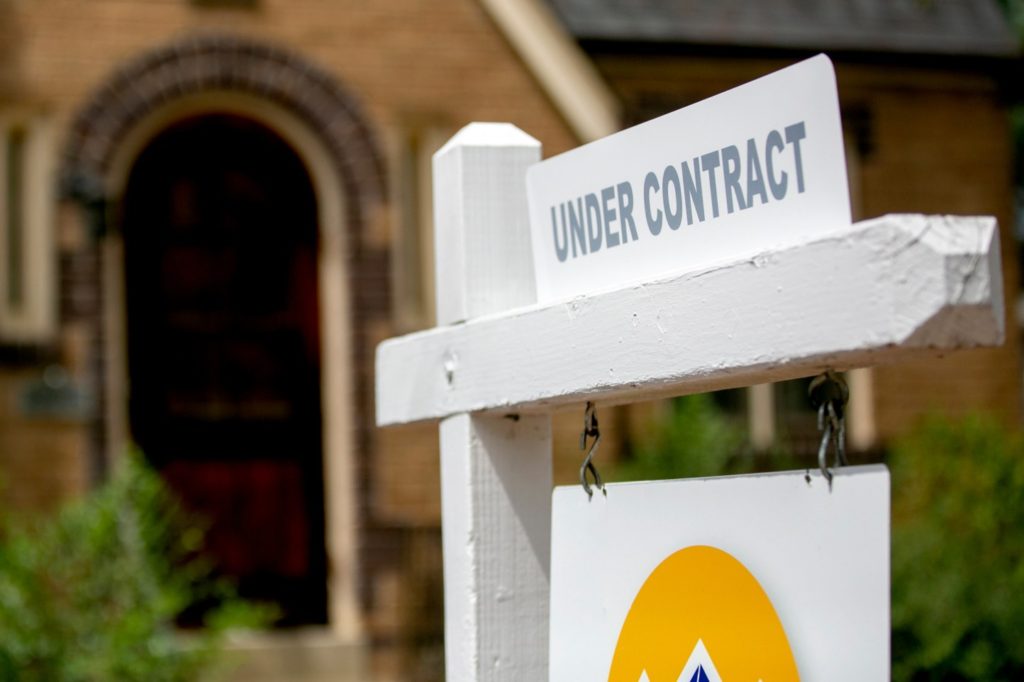
Tel: 551-580-4856 | Email: F.WINNIE.S@GMAIL.COM
Tampa Bay’s August home sales flat, prompting more predictions of normalcy
One national economist said buyers are getting more patient, while another sees the market starting to level out.
By Emily L. Mahoney
9/22/2021

Tampa Bay’s competitive real estate market continued to follow the trends seen over the last year in August, as inventory remained low and median sales prices were double-digit percentages higher than a year ago.
But there were also slight signs of change. Pinellas County had about 5 percent fewer single-family home sales compared to August 2020, Hillsborough had about 3 percent more sales, and Pasco’s remained close to level with just a 1 percent increase, according to new numbers released Wednesday by Florida Realtors.
Those figures, relatively flat when compared to some of the year-over-year gains of months past, lead some industry professionals to believe the market’s fervor is ever so slightly starting to level off. Hernando County was the exception, with about 18 percent more sales than the same time last year.
Nationally, sales of single-family homes, townhomes, condos and co-ops also decreased by 2 percent from July to August, and were 1.5 percent lower than one year ago, according to the National Association of Realtors.
“Sales slipped a bit in August as prices rose nationwide,” said Lawrence Yun, the association’s chief economist, in a news release. “Although there was a decline in home purchases, potential buyers are out and about searching, but much more measured about their financial limits, and simply waiting for more inventory.”
Ruben Gonzalez, chief economist at Keller Williams Realty, also pointed out that the “abnormal surge” of sales in the second half of 2020 will increase the likelihood of negative year-over-year percentages, even if sales this fall stay relatively strong compared to normal years. But he also predicted a “return to normal seasonal patterns.”
“Home sales will remain strong going into next year, but we should see inventory levels continue to slowly trend toward more normal levels and home price appreciation begin to slow over time,” he said in a statement.
Higher prices continue to be a major concern of economists as affordability continues to erode. The national median price last month hit $356,700, marking 114 straight months of year-over-year gains.
The median sales price was $362,000 in Pinellas, $358,000 in Hillsborough, $316,000 in Pasco and $273,000 in Hernando.
But Carol Hasbrouck, a St. Petersburg-based Realtor with Charles Rutenberg Realty, said she has noticed some sellers reducing prices after they listed their houses too high.
“I personally have not had any sales with multiple offers in the last three sales I’ve done,” she said, though she noted they were all higher-end properties between $400,000 and $1.5 million.
Homes more in the price range for first-time buyers attract stiffer competition, she said, and she still hears about buyers struggling to compete with cash offers and homes selling above asking price.
Tampa Bay’s inventory, measured in how many months it would take to deplete all listings at the current sales pace, was still less than half the already low national average. Cash sales were also significantly up in all four counties when compared to last year.
“It’s definitely still a sellers’ market,” Hasbrouck said. “I do feel a slight easing up.”
Real estate outlook for the upcoming year
There are some indications that 2022 could be a better year if you’re looking to buy.
By Philip Townsend
9/21/2021
VIRGINIA BEACH, Va. — Buying a home in 2021 has been nothing short of frustrating; inventory has been down, prices have been up, and in many cases, you can’t even wait a day before a prospect is gone.
The U.S. housing market has gotten so out of whack — with demand far outpacing supply — that prices have risen to record levels and roughly half of all U.S. houses are selling for above their list price.
Data from real estate brokerage Redfin shows that two years ago, before the pandemic, just a quarter of homes were selling above the seller’s asking price. The current level is the highest in the decade that Redfin has tracked the data.
The situation has a lot of potential buyers wondering if relief is in sight.
No one has a crystal ball, but there are some indications that 2022 could be a better year if you’re looking to buy.
Let’s start with inventory.

We’ll use our largest city, Virginia Beach, as an example. According to Zillow, the city averaged about 12,000 active listings a month before the pandemic. In July of 2020, that number started plummeting, dropping to only 6,600 listings by February 2021.
Now those numbers are creeping back up. From February to August we’ve seen a 25 percent increase in listings. That’s significant, considering inventory often determines what you’re going to pay.
Unfortunately, we aren’t seeing any significant shift when it comes to home prices locally yet.
In Virginia Beach, the median sale price continues to climb, from $265,000 in August 2020 to $288,000 in August 2021.
Because the housing market is driven by supply and demand, the increase in inventory should help with the price of buying a home.
We probably won’t see a shift to a buyers’ market in the next year, but things could cool down enough to keep a little extra money in your wallet.
UVA to begin offering minor in real estate
By News Staff
9/19/2021

CHARLOTTESVILLE, Va. (CBS19 NEWS) — Undergraduate students at the University of Virginia will be able to get a minor in real estate starting in the spring.
According to a release, the Commerce School will host the 15-credit interdisciplinary minor that will be taught by faculty from across Grounds.
Faculty will come from the College of Arts and Sciences, the School of Architecture, the School of Engineering and Applied Science, and the Frank Batten School of Leadership and Public Policy.
“It feels great to be able to create a space for students interested in changing the face of the built environment, to have a path through the different schools that will allow them to pursue their curiosity in real estate,” said Drew Sanderford, a Charlottesville native who graduated from the College with a degree in history in 2005 and from the School of Architecture in 2010.
“The curriculum represents some of the classic ways to think about real estate, but will also have its own unique UVA spin that will allow really smart people to tell us what’s important about how to change the world. We’re excited about the volume of cool ideas that will come from the students,” he added.
In order to be eligible for this minor, students from any school at UVA will need to enroll in Foundations of Real Estate Finance, a three-credit course in the spring of their second year.
The release says the curriculum cores will require two courses in McIntire and one in the School of Architecture.
Students will get firsthand experience with the data and analytical tools and techniques that are used in real estate, including analysis, investment and land-use law.
“They can understand not only the aspects of the real estate industry, but also the nature of other related areas such as architecture, construction, finance, urban planning, and entrepreneurship,” assistant professor of engineering Diana Franco Duran said. “When entering the professional workforce, this interdisciplinary [approach] is vital to understand the various stakeholders and how they interact in these careers.”
Sanford says the minor would not have been created without the support of alumni and industry partners.
The release says applications will be taken beginning Nov. 1 and will be due by Feb. 21.
Decisions will be released March 24.
Students interested in this program should contact the McIntire Office of Undergraduate Admission for more information.
It Took Homes 11 Days To Sell In Denver In August. That Might Be A Sign That The Market Is Slowing
By Sarah Mulholland
9/04/2021

Home sales in the Denver metro are slowing, giving some buyers a chance to jump into what has been a highly competitive market for more than a year.
In August, houses sat on the market for an average of 11 days, according to a new report from the Denver Metro Association of Realtors. That may not sound like a lot, but it’s an increase from nine days in July.
And, earlier this year, homes were routinely going into contract within three to four days of being put on the market in the metro area, which includes Boulder and Broomfield counties.
Buyers typically move slower in late summer as families settle in for a new school year, Andrew Abrams, chair of the real estate association’s trend committee and a realtor in the area, noted in the report.
“They are a bit more patient, wanting to find the right house for the ‘right’ price,” Abrams wrote.
How long it takes to sell a home depends on its price, with less expensive homes selling faster than more expensive ones. A home with a price tag that is less than $500,000, for example, might be on the market for nine days, while a home priced in the $750,000 to $1 million range might sell in 16 days.
In August, the median price for a home in Denver was $540,000, which was about the same as July. But that’s 17 percent higher than it was a year ago.
It’s too early to tell whether the recent slowdown is due to seasonal patterns or the housing market beginning to correct itself after a boom that drove double-digit price gains across much of the state and the country.

“Sellers have basked in the control seat for so long that it can be hard to set reasonable expectations,” realtor Amanda Snitker wrote in the report, advising homeowners to prepare for a slower sales process.
While sellers might not be getting multiple bids in one weekend, low interest rates and a lack of homes for sale are still fueling a tight housing market.
A record-low 3,582 homes were listed last month in metro Denver, marking a 35 percent decline from the same time in 2020, according to the report. Typically, there are about 16,000 homes for sale in August, though that number topped 31,000 homes in 2006 — a record high.
So far this year, Denver home sales have totaled more than $25.5 billion, a 25 percent jump compared to this time last year, and about five percent above sales volume in August 2019. The pandemic shifted the normal ebbs and flows of the housing market, halting sales in the spring and early summer of 2020, and pushing them into the colder months.



